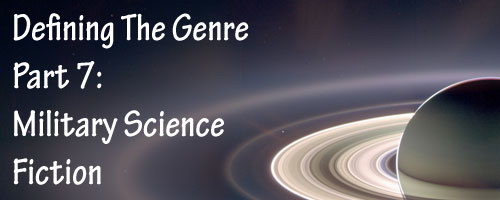
Attention! The idea of Military Science Fiction may seem like a subject not worth spending a whole lot of time talking about. After all, doesn’t it seem rather self explanatory? It’s about the military, any branch, and it’s about science fiction, usually in the speculative future variety. However I would put to you that Military Science Fiction is deeper than that. While it might very well be escapist literature to characterize all of the romanticized visions we have of the military, it can also be a hard hitting commentary on current events and politics. While there are probably more books in the subgenre than about the subgenre, I did some digging to explore the origins of Military Science Fiction, its themes, and why it’s so interesting to read.
One influencing origin of what is now contemporary Military Science Fiction is the Space Opera, which was earlier discussed in this series. Interplanetary travel made it possible for the human race to not only travel to distant planets, but also to fight their inhabitants. With the advent of humans getting on ships and fighting alien races, the budding subgenre was really characterized by “space marines,” and fighting took place on the surface of planets (Stableford, 494). Or else, if humans weren’t traveling to fight, alien species traveled to fight them. While these early examples might not contain the military discipline and training which will later be elements of the subgenre, they certainly cannot be over looked. Another early predecessor to Military Science Fiction would be the concept of the future war.
The idea of future war was a concept bred and multiplied in Britain and Europe possibly even before it was popular in the United States. George T. Chesney wrote a story called “The Battle of Dorking” (1871) which was a speculative fiction piece, describing a successful German Invasion of Britain. Laughing over the name aside, his story was immensely popular, and while perhaps not science fiction in nature, it did open up the door to speculate even further into the future. From 1891-1892, George Griffith’s serialized “The Angel of Revolution” and his later “The Lord of Labour,” published after his death in 1910, helped popularize the future war concept, with wars being fought with armored planes, disintegrating rays, and nuclear weapons. Soon periodicals were clamoring for these kinds of stories, and by whatever name you call it Military Science Fiction was born (James and Mendlesohn, 23-24)
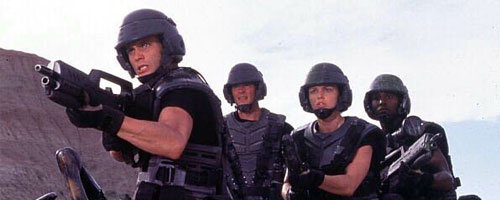
Two early popular examples of future war, which really had a focus in science fiction, were H.G. Wells’ War of the Worlds (1898) and Garrett P. Serviss’s Edison’s Conquest of Mars (serialized starting 1898, novelization in 1947). In War of the Worlds, Earth is attacked and must fight back in order to preserve life on Earth. The fight has been brought to them, and they must find a way to defeat an enemy on their own turf. In Edison’s Conquest of Mars, a continuation of War of the Worlds, the human race brought the fight back to Mars (Stableford, 282). While these are early examples of military in science fiction, or at least militaristic acts in science fiction, they cannot, I believe, be defined as Military Science Fiction. In these and future manifestations of Space Opera turned Military Science Fiction, the focus is on the military itself, its actions, or its attempt at action.
Science fiction reached a large readership from this time until around the time of the Second World War. Effects of the war were felt on many levels, and not just by science fiction, let alone its subgenres, which were even less defined than they are now. What we now look back on as pulps, serials that would appear in Amazing Stories and its contemporaries were no longer widely available, and many publishing houses failed at this time. War rationing had people spending their money on the necessities, not stories. Following the Second World War and with the Cold War emerging afterward, science fiction started to exhibit many of the subjects of paranoia and concern that the people who were writing it and reading it were likely having (Seed 67-68).
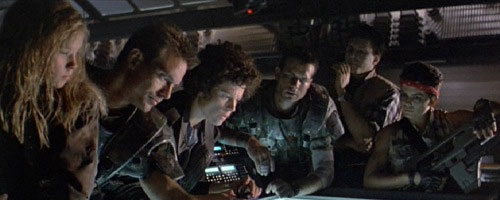
I would be remiss if I were to discuss Military Science Fiction and I did not mention Robert Heinlein. While Military Science Fiction might not have existed by that title, being shuffled somewhere around the corners of Space Opera and earlier “future war”, it is my personal opinion that Starship Troopers (1959) put Military Science Fiction on the radar. (Note, I’m not citing anyone… so bash away… I know there are those of you out there who think that Starship Troopers didn’t deserve the Hugo Award). Starship Troopers is a first person account of a young man who joins the Mobile Infantry in a time when military service is the only route to citizenship and a vote. The first part of the book deals, in a flashback format, with his basic training, during which The Bug War gets into full swing. After leaving training he is then sent off to fight in the war.
While there might be some heavy handed political ideas about who should have the right to vote, the real focus of the story is the military experience. Through the main character’s eyes we see the effect of war, and we learn as he learns how to work as a cohesive unit with his fellow soldiers. Starship Troopers isn’t the only Heinlein book that deals with the military or military action. Puppet Masters captures the heart of the Cold War paranoia, specifically in that the aliens use mind control on their victims. Unlike in War of the Worlds where the human race is ill equipped and unable to combat the threat, in Heinlein’s Puppet Masters the focus is less on the invasion and more on what humans are doing to defeat their foes.
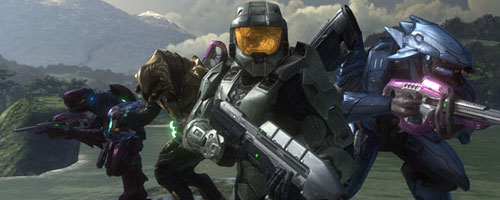
It only makes sense to look at Military Science Fiction in the context of military action that is occurring around it. After World War I, pulps continued in their popularity. Alien invasions would sometimes mirror the bombing invasions, but the science fiction that mirrored it was still escapist. After World War II, and especially after the atomic bomb was dropped, these renewed and increased fears of disastrous invasions continued, pulps turned into digests, and the genre started to change. The Cold War brought a new level of paranoia into science fiction that seeps through even to today.
The Vietnam War brought to science fiction the same thing it did elsewhere, a polarization of ideals. However, in science fiction it brought on works such as Bill the Galactic Hero (1965) by Harry Harrison, The Warbots (1968) by Larry S. Todd, and The Forever War (1974) by Joe Haldeman. Post Vietnam brought a real surge to the subgenre, and for possibly the first time ever, it was actually starting to look like its own subgenre rather than the red headed stepchild of Space Opera. Orson Scott Card’s Ender Series (starting in 1977) and David Drake’s Hammer Slammers (1979) really began to popularize the idea of Military Science Fiction.
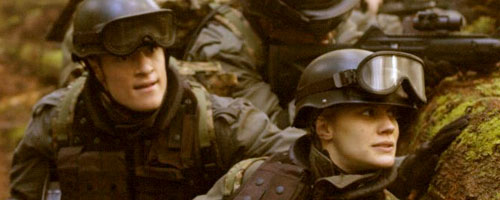
According to Stableford, Military Science Fiction has one limitation, the atom bomb. The result of a war, especially a Third World War, which is a popular theme in speculative future war writers, acted out with atomic weapons or worse, would result in the annihilation of the Earth. Since I’m not going to even start touching on the apocalypse in this article, this is a boundary that is often explored, contemplated and even used in Military Science Fiction (559-560).
As Americans we’re still in the midst of our latest war, and as yet the full impact of it has yet to be felt. How this is going to affect our science fiction is any one’s guess. One example I can point you to is Orphanage (2004) by Robert Buettner (and if you haven’t already, you should listen to my interview with him where we talk about Military Science Fiction). Orphanage is written with a post 9-11 context, and I would even look at the Slugs as a parallel to terrorists; they are something we can’t possibly understand, and you can’t win the war against them by killing just one or just the ones attacking you.
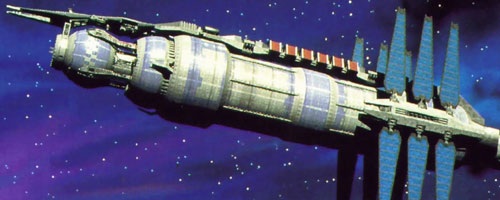
Like after the first two World Wars where invasion was a common theme, it would not surprise me if the future in Military Science Fiction shaped itself around the idea of terrorism, globally and in space. What influence will the political and military actions of our current leaders have on the realm of fiction? Fiction often imitates life, so it will be interesting to see how it develops. Military Science Fiction may just be a bunch of grunts humping it across the universe or protecting Earth from alien invaders, but it certainly should not be over looked. At ease, soldier.
Military Science Fiction Recommended Reading:
- Robert Heinlein – Starship Troopers
- Robert Buettner – Orphanage (Jason Wander)
- John Scalzi – Old Man’s War
- Joe Haldeman – The Forever War
- Gordon R. Dickson – Dorsai
- Orson Scott Card – Ender’s Game
- David Weber – On Basilisk Station (Honor Harrington)
- David Drake – The Complete Hammer’s Slammers Volume 1
- Anne McCaffrey and S.M. Stirling – The City Who Fought
- Harry Harrison – Bill, the Galactic Hero
Resources:
- James, Edward, and Farah Mendlesohn, eds. The Cambridge Companion to Science Fiction. New York: Cambridge UP, 2003. 22-24, 74.
- Seed, David, ed. A Companion to Science Fiction. Grand Rapids: Blackwell Limited, 2005. 67-68.
- Stableford, Brian. Science Fact and Science Fiction. New York: Routledge, 2006. 282, 494, 559-560.



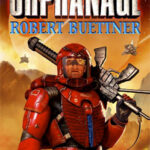
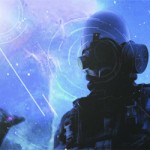
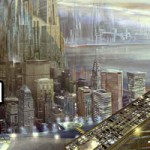
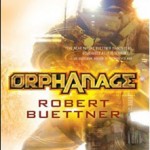
Pingback: fritz freiheit.com » Link dump
A very good, very solid summary of the subgenre. Well done.
What I find particularly interesting about the classics of MilFic, particularly Hienlien, Haldeman, and most especially Scalzi are the societal comments that go beyond the obvious, hit-you-over-the-head-with-a-hammer ones (or in the case of Heinlien, tie you up to a post and flog you with it… but hey). There are the more subtle comments in there as well. These are often overlooked by pundits who slam the genre.